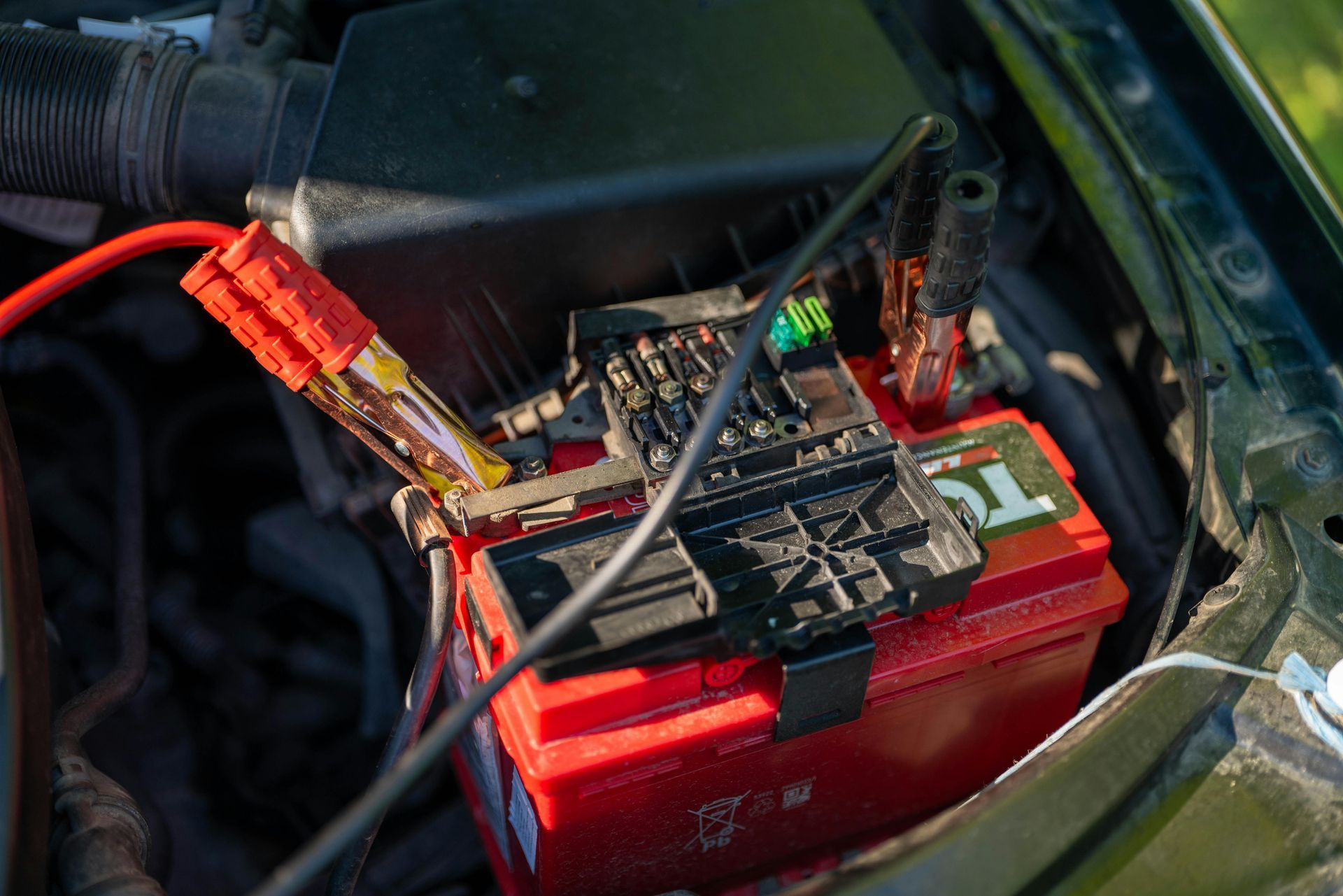What’s Up With That? Why Winter Weather Can Kill Your Car’s Battery
Auto Shops Located in: Chapel Hill, Durham, Taleigh, Apex, and Cary North Carolina

There are few things more frustrating than waking up early on an icy cold day, heading out to your car, turning the key — and getting a whole lot of nothing. A few clicks, maybe the start of a turnover, but no ignition.
Unfortunately, finding your car battery dead on a cold winter’s day — even when it seemed to be working fine just days ago — is a fairly common occurrence. Here’s why it happens.

Car Batteries and Sponges
When you open up a new kitchen sponge fresh out of the pack, it’s as ready to go as it will ever be. Just a touch of soap and water, and it’s the right tool for cleaning dishes, countertops, and even the burnt bits at the bottom of your stove.
For another few days or weeks, that same sponge will handle your cleaning jobs admirably. Just rinse it out, leave it to rest next to your sink, and apply a new dab of soap and water each time you go to use it.
But after many more cycles of soap, wash, and rinse, you’ll notice it start to wear out. It may still clean alright on a surface level, but it will start to develop a funny smell that just won’t go away. That’s a natural sign that it’s time to replace your sponge.
The same is true of a car battery: Right after you replace one in your car, it’s at the best performance level that it will ever be. But after dozens or hundreds of cycles of giving power to your car’s electrical system and being recharged by driving, that battery has seen better days. And just as a stinky sponge can really put a crimp in your cleaning plans, so can a stinker of a battery keep you from getting to work on time.
Temperature is the Real Killer
But now imagine this: What if you used that same fresh and new sponge for cleaning up, then left it outside in all kinds of weather? In the heat of the summer, it would dry up in the noonday sun. As temperatures drop, it would freeze in the first nights of winter. Either way, your once-useful sponge would have its life span seriously reduced.
The same is true for your car’s battery, and it’s why we have a particularly difficult time with dead winter batteries here in the south. After spending a whole summer at egg-frying temperatures, your battery has seen better days. It’ll keep working throughout the hot season, but when it comes time to do some work in the winter — where you’ll need more cranking amperage just to get that first spark — it’s already worn out.
When is it Time to Replace Your Battery?
Now for the good news: Your battery is about as tough as it looks in its hard plastic case, and can survive for more than one changing of the seasons.
In fact, the average battery lasts for around three years — more if your car is running really efficiently, and less if you have some electrical issues drawing too much power from it.
But when it does finally come time for your battery to give up the ghost, there’s a very good chance that it will be right when you most want it not to, on a cold winter’s day.
To prevent that irritating fate, we recommend making battery testing a regular part of your car’s routine maintenance schedule. When you come into your nearest Chapel Hill Tire location for any services, we’ll gladly check your battery for you at the same time. And if it looks like your battery’s on its last legs, we can recommend a replacement for you right then and there.















